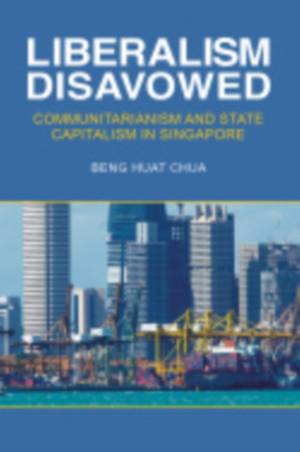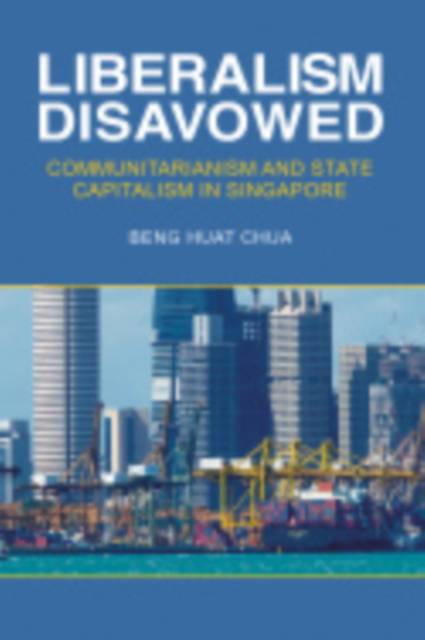
- Retrait gratuit dans votre magasin Club
- 7.000.000 titres dans notre catalogue
- Payer en toute sécurité
- Toujours un magasin près de chez vous
- Retrait gratuit dans votre magasin Club
- 7.000.000 titres dans notre catalogue
- Payer en toute sécurité
- Toujours un magasin près de chez vous
Liberalism Disavowed
Communitarianism and State Capitalism in Singapore
Beng Huat ChuaDescription
In Liberalism Disavowed, Beng Huat Chua examines the rejection of Western-style liberalism in Singapore since the nation's expulsion from Malaysia and formal independence as a republic in 1965. The People's Action Party, which has ruled Singapore since 1959, has forged an independent non-Western ideology that is evident in various government policies that Chua analyzes, among them multiracialism, public housing, and widespread social distributions to the citizenry.
Singapore is prosperous and peaceful, it's highly advanced on various metrics of economic development, it has a great deal of regional influence, it is home to sophisticated industries and a large financial service sector, and it features what are by Western standards unusually low levels of social inequality. Paradoxically, however, it is no beacon of political liberalism. Chua sets forth ample evidence that the dominance of the People's Action Party is based on a combination of economic success and media control, limits on public protests, libel suits against political opponents, and severely curtailed civil liberties.
Spécifications
Parties prenantes
- Auteur(s) :
- Editeur:
Contenu
- Nombre de pages :
- 234
- Langue:
- Anglais
Caractéristiques
- EAN:
- 9781501713446
- Date de parution :
- 19-06-17
- Format:
- Livre broché
- Format numérique:
- Trade paperback (VS)
- Dimensions :
- 152 mm x 229 mm
- Poids :
- 349 g







